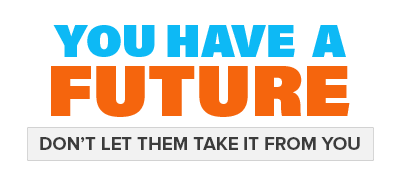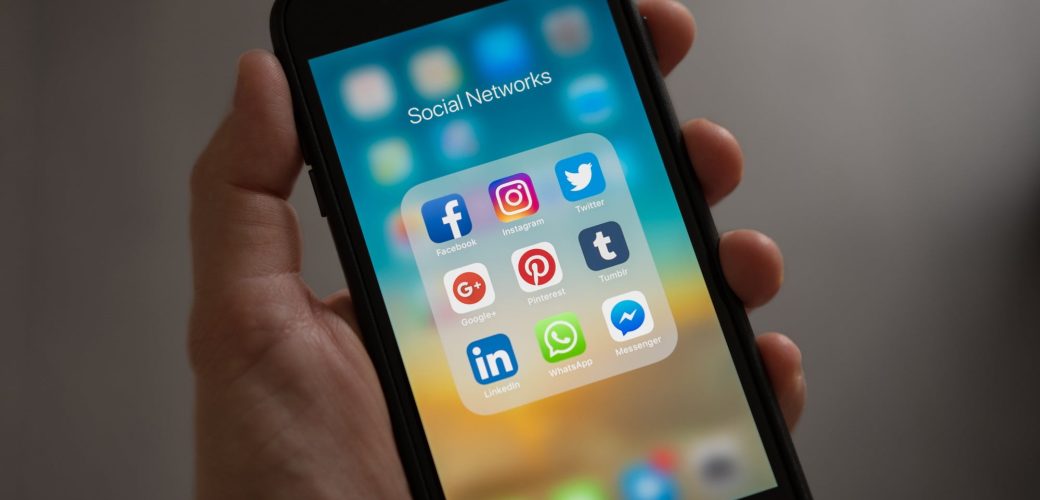I’ve been on the Internet for a very long time. The first email address I ever had was at Yahoo.com.
I created it in 1998.
Yes, I’ve been online since before a lot of my readers were born. In that time, I’ve seen a lot of things happen. I remember the original rules people would follow, like “don’t trust everything you read on the Internet.” It seems that most people these days ignore that one completely.
What you’re about to read is a guide to help you improve your online life. At the same time, this will help improve your mental health. Or at least help reduce the chance of the Internet screwing it up.
Don’t add “friends” you don’t know.
Not everyone is your friend. Many people will only befriend you to gain access to the information locked behind your “Friends Only” profile setting.
I can’t tell you how many times I’ve heard someone say their Facebook photos were “hacked,” and that’s how they were spread around the Internet. They weren’t hacked. The person added someone to their friend’s list that they shouldn’t have. That “friend” then downloaded all of the person’s photos and dumped them online somewhere. This primarily happens to attractive young girls but does affect good-looking young guys as well. It’s how their pictures end up on adult sites without their knowledge or consent.
Fake accounts will also try to befriend you so they can pretend to be you. They’ll copy your information, create a fake profile of you, and then try to contact your friends to ask for things like money. That’s why you’ll sometimes see someone you are already connected to show up trying to add you again.
Note: This was once fact-checked as “false” by Lead Stories. Lead Stories is the worst fact-checking team I’ve ever seen. Within their own fact check, they proved the fact-check correct while claiming it was false.
Stop telling the world everything about you.
The more you tell the world about yourself, the more people can use it against you. Hackers love using your personal information to break into your accounts, so be very careful with the details you share online.
I’m sure you’re an interesting person, but these days, a lot of people overshare details about their lives. It ends up getting them into trouble.
Stop taking pointless quizzes and answering random questions on Facebook.
First of all, you don’t need a quiz to tell you what kind of potato you are. I can tell you that already: you’re not a potato. You’re a person.
Second, these quizzes may be a way for you to pass the time, but they are also a way for scammers and marketing companies to get access to your information. They can use this to bombard you with advertisements, spam, or use it for more malicious purposes.
Third, people use information from things like this to break into your accounts. How many sites ask you for answers to secret questions? Questions like “The name of your first pet” or “What street you grew up on.” My internet service provider uses questions like that in case you forget your password.
NEVER ANSWER THOSE QUESTIONS TRUTHFULLY! NEVER USE THE SAME ANSWER TWICE!
These questions should be treated the same as a password, and often they are not encrypted. That means that if someone hacks their service, they’ll be able to see those answers. If you use the same answer elsewhere, they’ll be able to gain access to your other accounts.
So all of those questions that pop up on Facebook, asking you for random mundane details about your life: stop answering them. They are attempts to gain information that can be used to break into your accounts.
I know I said to not use the same answer twice. That means you’ll have a lot of information to keep up with. Don’t worry. My next tip makes that really easy.
Use LastPass
Good passwords and secret questions are hard to remember. LastPass does that for you. It’s a great tool to use and is very useful if you have a lot of different passwords and secret codes that you need to remember. Plus, the data is encrypted, so even if someone hacks the LastPass servers, your data will look like a blob of mess that won’t make sense.
That said, make sure your master password is strong. Also, turn on Two Factor Authentication. That’s where when you sign in, they’ll send a code sent to your phone or email. You have to enter that code to get logged into your account. If someone wants to break into your LastPass account, they will need your password AND your device.
Avoid sites like Twitter and TikTok.
I’ve been on Twitter since 2007. It used to be interesting, but after a couple of years, Twitter became a cesspool of horrible people. As much as they like to claim to support free speech and inclusion, Twitter has shown an obvious bias and a willingness to let people be threatened, targeted, and further harassed. They have literally banned people who were attacked. The company does not care about its users, and they prove that every day.
The vile garbage that comes with Twitter has been detrimental to many people, so it should definitely be avoided. And yes, I do have a Twitter account, but I rarely use it for much more than a marketing tool. Viewing the content makes me leave within minutes.
TikTok has other problems. TikTok has a history of:
- Discrimination against “ugly” and poor people – https://theintercept.com/2020/03/16/tiktok-app-moderators-users-discrimination/
- Accusations of racism – https://www.nbcnews.com/pop-culture/pop-culture-news/months-after-tiktok-apologized-black-creators-many-say-little-has-n1256726
- Suppression of videos by people who are disabled, people who are fat, people of different sexual persuasions, people with facial birthmarks… – https://slate.com/technology/2019/12/tiktok-disabled-users-videos-suppressed.html
- Secretly spying on you – https://www.forbes.com/sites/zakdoffman/2020/06/26/warning-apple-suddenly-catches-tiktok-secretly-spying-on-millions-of-iphone-users/
Also, several countries have banned it completely, as has the US military. Fears of the app stealing your data are not simply something Donald Trump said. These are concerns that many others worldwide have had but seemed to get ignored because everyone focused on him. That made a lot of young people miss all of the bad shit TikTok has been doing.
And let’s be clear, TikTok isn’t all that different from other video-sharing platforms. It made a name for itself by being an app for singing and dancing videos. People gained a lot of followers quickly, but past reports indicated that the follower counts and views were faked by TikTok to make people keep using the app.
But besides the already lousy track record, TikTok has a ton of content that is terrible for kids and teenagers. It spreads enormous amounts of misinformation by people who pretend to know what they are talking about, inspires horrifically disgusting trends, and pushes people to be horrible to each other.
It’s almost like it’s trying to become the video version of Twitter.
Block people as necessary
Most popular social media networks provide a way to block users who are harassing you. If someone keeps coming to your page to trash you, feel free to block them, but understand that there is a difference between what I’m describing and legitimate criticism.
These days, a lot of people want to claim any criticism is harassment. That’s not true and isn’t what I’m talking about. I’m talking about people who are only viewing your photos, videos, and other posts so they can leave nasty comments that insult you and tell you to harm yourself. Block them and move on.
This is not a complete list, and more will be added to it over time. Keep checking back, or sign up to the newsletter to be alerted to changes and future content added to YouHaveAFuture.org.

